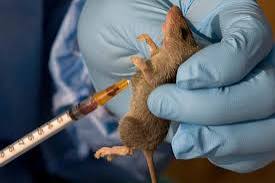The Nigeria Centre for Disease Control and Prevention (NCDC) has confirmed seven new cases of Lassa fever in Kogi, Edo, Bauchi states.
The cases were recorded during week 30 of 2024, covering the period from July 22 to July 28, according to a statement released on the NCDC’s official website.
Lassa fever is an acute viral hemorrhagic illness, often characterised by excessive bleeding. The disease is primarily transmitted to humans through contact with food or household items contaminated by infected rodents. It can also spread from person to person through direct contact with bodily fluids.
Symptoms of Lassa fever include fever, headache, sore throat, general body weakness, cough, nausea, vomiting, diarrhoea, muscle pains, chest pain and in severe cases, unexplained bleeding from the ears, eyes, nose, mouth and other body openings.
In the latest reports, Edo registered four new cases, Bauchi recorded two and Kogi reported one. Fortunately, no deaths were recorded during this period. However, the cumulative number of deaths in 2024 stands at 163, with a case fatality rate (CFR) of 17.0 per cent, slightly lower than the 17.3 per cent reported during the same period in 2023.
According to the NCDC, 66 percent of all confirmed cases in 2024 have been reported from Ondo, Edo, and Bauchi states, with the remaining 34 percent distributed across 25 other states. In total, 28 states have reported at least one confirmed case, affecting 125 local government areas.
The agency highlighted several challenges in the fight against Lassa fever, including the late presentation of cases, which contributes to a higher CFR, and poor health-seeking behavior due to the high cost of treatment and clinical management. Additionally, poor environmental sanitation and low awareness levels in high-burden communities remain significant obstacles.
No health workers were infected in the reporting week, and the age group most affected by the infection was between 31 and 40 years. The NCDC emphasized the need for heightened surveillance and preventive measures nationwide.
The agency urged the public to follow recommended safety protocols and promptly report any symptoms to local health authorities. The NCDC is intensifying efforts to trace contacts and implement control measures to curb the spread of the disease. It continues to monitor the situation closely and is working with state health authorities to ensure a coordinated response.
The National Lassa Fever Multi-partner, Multi-sectoral Technical Working Group (TWG) continues to coordinate the response at all levels.


